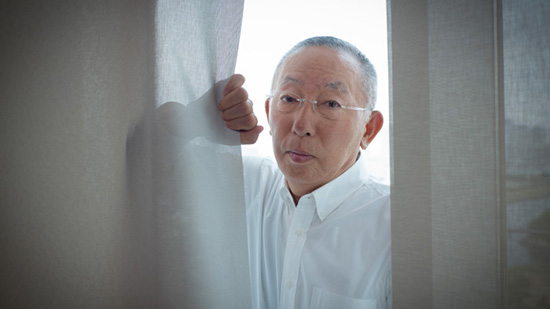优衣库创始人有意交棒给女性

|
迅销集团(Fast Retailing Co.)创始人、现年70岁的亿万富翁柳井正说,他更希望由女性接班,这样做对这家亚洲最大的零售商来说更有益。 “这份工作更适合女性,”服装巨头优衣库背后的首席执行官柳井正在接受采访时说,“她们坚忍不拔,注重细节,更懂审美。” 随着柳井正年龄增长,他越来越多地被问及公司交接的问题。柳井正把公司从父亲的裁缝店发展成了一个全球品牌。赤井田真希可能是一个选择,她于今年被任命负责优衣库日本业务,这是公司利润最高的部门。柳井正表示,他希望将女性高管的比例提高到一半以上。迅销去年实现了管理层女性比例超过30%的目标,目前已经有6名女高管。 上周三,迅销在东京股市的股价上涨0.9%。 日本企业高层性别多样性普遍不足,该现象受到密切关注;日本的上市公司中,只有4.1%的高管职位由女性担任。与美国等其他国家相比,这个数字十分微不足道。多项研究显示,美国公司高管层女性约占四分之一。 “有这种可能,”当被问及赤井田真希有没有可能成为继任者时,柳井正回答道。现年40岁的赤井田真希于2001年加入优衣库,曾在中国和日本管理过优衣库门店,还曾在销售和人力资源部门任职。 海外扩张 迅销公司通过优衣库的海外扩张摆脱了国内的低迷,无论是谁接替柳井正,他们接手的都是日本最知名的全球品牌之一。优衣库通过在中国和美国等海外市场开设新店,实现了收入的持续增长,2018年岁入超过2万亿日元(189亿美元)。 在日本人口老龄化和人口减少引发劳动力短缺之际,日本首相安倍晋三致力于提升女性在劳动力人口中的地位。根据国家人口与社会保障研究所(National Institute of Population and Social Security Research)的数据,随着出生率的下降,到2060年,日本人口将减少近三分之一,届时65岁及以上的人口占比将达到约40%。 柳井正说:“我们做的是卖衣服的生意,年纪大可不是件好事。” 投资者在进行股票评估时,更加关注管理层的性别多样性。管理着3000万美元项目、总部在旧金山的马修斯亚洲基金会(Matthews Asia)的分析师凯瑟琳·柯林斯说,消费类公司尤其如此,因为高管和核心目标客户特征的匹配可能很重要。 匹配目标人群 柯林斯说:“我们希望管理层中有足够多的人对当地的群体有一定经验,熟悉这个客户群体需要什么、想要什么、心愿是什么。” 柳井正补充道,东南亚地区将成为迅销业务越来越重要的一部分。该公司表示,将与联合国下属的国际劳工组织合作,投资180万美元,为印尼的工人提供支持。国际劳工组织还将在迅销拥有代工厂的其他国家开展研究,探索今后该如何提高对工人的社会保护。 柳井正表示,这样的投资既有助于实现商业目标,也能为世界做出贡献,因为如果发展中国家人口能够向更高阶层流动,最终可能有助于提振迅销的营收。 “如果我们发展业务的地方收入不涨,衣服就卖不出去,”他说。(财富中文网) 译者:Agatha |
Tadashi Yanai, Fast Retailing Co.’s 70-year-old billionaire founder, said he would prefer to be succeeded by a woman, which would be better for Asia’s largest retailer. “The job is more suitable for a woman,” Yanai, the chief executive officer behind clothing giant Uniqlo, said in an interview. “They are persevering, detailed oriented and have an aesthetic sense.” As Yanai gets older, he’s been asked more frequently about succession at the company, which he built from his father’s tailor shop into a global brand. A possible candidate could be Maki Akaida, who was appointed this year to run Uniqlo’s Japan operations — the company’s most profitable unit. Yanai said he wants to increase the ratio of female senior executives to more than half the total. Fast Retailing currently has six women in such roles, after hitting its goal last year of having more than 30% of women in management positions. Fast Retailing shares climbed 0.9% in Tokyo trading on Wednesday. Japan has faced scrutiny over its lack of gender diversity in top management roles; only 4.1% of executive titles at publicly traded firms in the country are held by women. That pales in comparison with places such as the U.S., where women make up about a quarter of executive ranks, according to multiple studies. “It’s a possibility,” Yanai said when asked whether Akaida would be a potential successor. Akaida, 40, joined the company in 2001 and has managed Uniqlo stores in China and Japan, as well as working in the sales and human resources divisions. Expanding Overseas Any successor to Yanai would inherit one of Japan’s more recognizable global brands, after Fast Retailing fought off domestic doldrums by expanding Uniqlo overseas. Revenue has grown consistently, surpassing 2 trillion yen ($18.9 billion) in 2018, mainly through new stores in foreign markets from China to the U.S. Prime Minister Shinzo Abe has sought to promote women in the work force amid a labor shortage triggered by Japan’s aging and shrinking population. With a declining birthrate, the number of people will slump by almost a third by 2060, by which time about 40% will be 65 or over, according to the National Institute of Population and Social Security Research. “We’re in the business of selling clothes — it’s not so good that we’re old,” Yanai said. Investors are looking at gender diversity in management ranks to evaluate their holdings. That’s especially true for consumer companies where it may be important to have executives who are similar to and match the core customer profile, said Kathlyn Collins, analyst at Matthews Asia, a San Francisco-based fund with about $30 billion under management. Demographic Match “We would hope that there would be enough people who are overseeing management who have some sort of experience with that demographic, who maybe are familiar with the needs, wants, desires of that customer,” Collins said. The Southeast Asian region will become an increasingly important part of Fast Retailing’s business, Yanai added. The company said it would invest $1.8 million in a partnership with the International Labour Organization, an arm of the United Nations, to help support factory workers in Indonesia. The ILO will also conduct a study in other countries where Fast Retailing has contract factories to explore ways to improve social protections for workers in the future. Yanai said such investments are a way to both help pursue business goals and contribute to the world, as upward mobility in developing countries would likely eventually boost Fast Retailing’s top line. “If we expand in a place where incomes are not growing, we cannot sell clothes,” the CEO said. |













